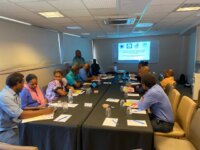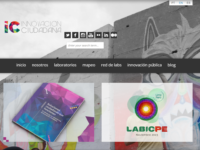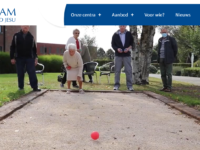The DYPA Career Days, organized by the Public Employment Service (DYPA) in Greece, fosters direct engagement between the business sector and jobseekers. This marks a significant departure for DYPA as these events are now systematically conducted, spanning the entire country. A key strength of DYPA’s Career Days lies in their comprehensive promotion of employment opportunities and the strategic engagement of interested individuals through a process characterized by simultaneous, adaptable, and…
Case Study Library
Where innovations are collected and shared to disseminate and replicate good ideas

Innovations:
0
This website, as well as any data and map included herein, are without prejudice to the status of or sovereignty over any territory, to the delimitation of international frontiers and boundaries and to the name of any territory, city or area.
Case Study
Becoming Agile: a way to deliver high quality products and solve long standing reform challenges in…
To improve the Government's response to problems and delivery of products, the Office of the Prime Minister of Croatia introduced Agile methodology and Agile teams, which mimicked startups in using iterations and learning to inform their next move. All governments have policy challenges that seem too complex to be solved. These challenges span across several departments, have some areas where jurisdiction of departments is unclear, and any intervention would have serious impact on all citizens.
ANII, in collaboration with the private sector and the support of Uruguay's Ministry of Health, is piloting a novel Open Innovation Initiative (MH2030). Ageing populations and rising numbers of people with multiple chronic diseases are placing an increasing burden on health systems. There is a need for improving healthcare by fostering an innovative environment. Through this new co-creative approach, local entrepreneurs work collaboratively with partnering healthcare institutions to tailor and…
HighEd is a platform that enables young people who want to study abroad to make their plans for applying on the basis of safe and reliable information. Today, the number of young people from the Republic of Uzbekistan going to foreign countries to study is increasing. As young people go abroad, the number of consulting agencies that offer education orientation is increasing, but the services they offer can be inaccessible to many Uzbekistanis and some agencies operate illegitimately.…
Case Study
Trusted Official Statistics for Good Governance and Evidence Based Decision Making in Vanuatu

The Parliament of Vanuatu has struggled to fulfil its legislative, budget, oversight, and representation functions due to limited capacity to utilise trusted statistics. The Vanuatu Bureau of Statistics addressed this capacity gap through targeted training with Members of Parliament (MPs) and parliamentary civil servants to improve policy making. This is the first focused effort in Vanuatu to introduce data for sustainable development monitoring to MPs with the aim of enhancing good governance.
The implementation of the OKRs (Objectives and Key Results) methodology in the National Agency on Corruption Prevention (NACP) was developed to address performance management, transparency, and team clarity and coordination issues. OKRs have benefited the organization by providing a structured framework to set, track, and measure objectives, thus improving accountability and goal alignment. This marks the first experience of implementing this approach in the Ukrainian public sector, drawing…
The Citizen Innovation Labs (Laboratorios de Innovación Ciudadana - LABIC) are a methodology to generate innovative solutions between citizens and institutions for the common good. They utilise a method to experiment, collaborate and accelerate innovative projects that emerge from citizens and have the potential to generate useful solutions to social, cultural, environmental and economic challenges. These solutions focus on the most pressing issues of the 2030 agenda and they are replicable,…
More than 80% of the residents in residential elderly care suffer from unwanted urine loss. This is why care staff check on them regularly, day and night. In order to minimize these disturbing and time-consuming incontinence rounds, the residential care organization Zorg-Saam set out to test new incontinence solutions equipped with sensor technologies that detect when bandages are saturated and alert care staff. With this innovation, supported by the The Programme for Innovation Procurement of…
The UK government launched a new “youth hub” offer of employment services to young people affected by the disruption of the covid-19 pandemic. Through four days of workshops with key stakeholders, which included engaging young people, Impetus ran a theory of change process to enable one of the flagship hubs to co-design their new service to best serve young people. This is the first time that Impetus has applied its theory of change tools, and its impact focus to a government policy…
The UK Government Policy Profession has piloted a new model called Shared Policy Capability Project to support department leaders and policy makers undertake a facilitated self-assessment of their policy environment and identify opportunities for improvement. Through this the government aims to build capability at a department level and enable policymakers to take an active role in improving the environment in which they make policy.





